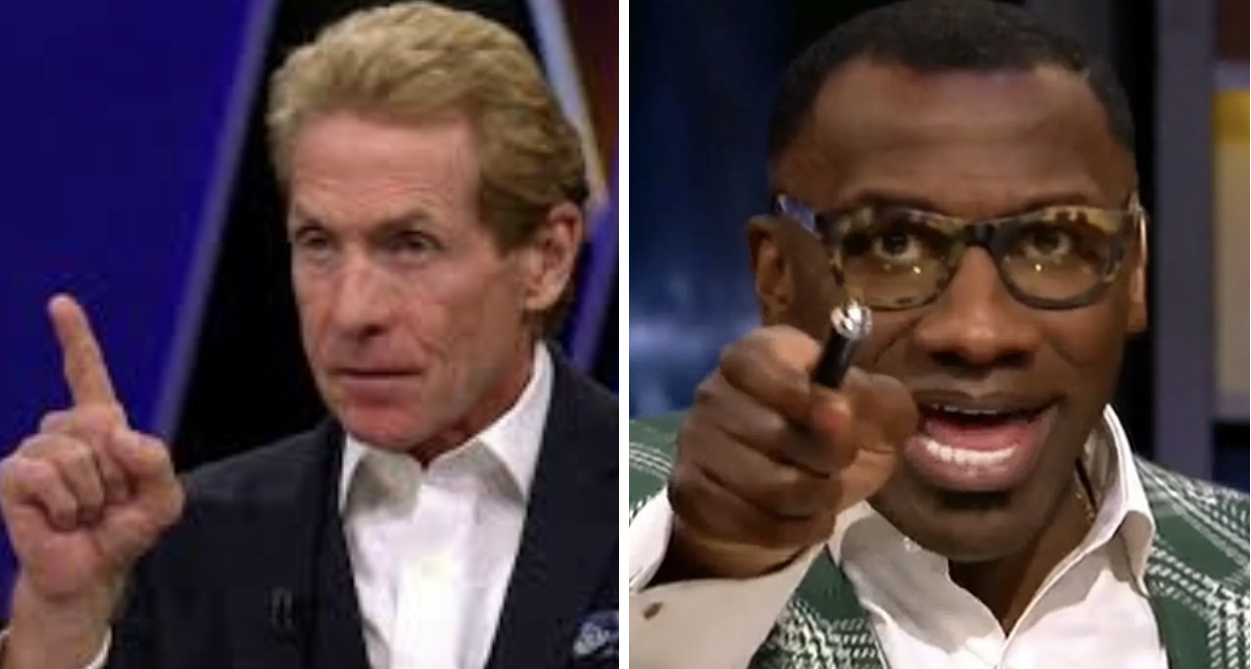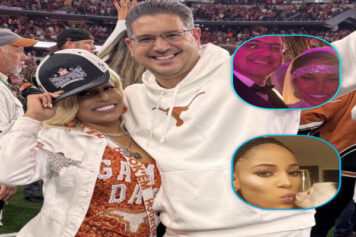Entering the 2020 season, former NFL head coaches Lovie Smith and Herm Edwards, both disciples of Tony Dungy’s impactful coaching tree, were two of 14 African American head coaches out of 130 FBS programs.
They were also two of the 11 African-American men who coached for one of the 65 prestigious Power 5 Conference schools (the 5 largest, revenue-generating conferences in college athletics) this season.
Jobs of this magnitude provide Black coaches with access, prestige, and the power to implement positive, progressive change within the college football machine.
Black Power 5 Coaches Are COVID-19 Casualties
With the firings of Smith on Sunday, Derek Mason at Vanderbilt and Kevin Sumlin at Arizona, that number has decreased to 8 Black coaches, just 12.31 %.
That’s a sad, damning and telling number and an indictment of the systemic oppression that still suffocates and stymies Black excellence at the corporate level and in acquiring leadership positions in sports.
READ MORE: Black College Football Coaches Only Get One Shot
The Black coaching fraternity not only lost some of its more talented members but the character of these coaches and the manner in which their leadership breeds inclusiveness and diversity of thought will be missed.
None of the first coaches had good seasons, but when you coach programs that are already delicately structured and not as talented as most of the heavy hitters in the country, a pandemic and everything that comes with it (positive tests, players opting out, no fans) can do a number on your goals.
READ MORE: 2019 College Football Black Head Coach Fraternity Takes Some Hits
Head Coaching Pipeline
The pipeline to head coaching jobs in college and the NFL has traditionally provided roadblocks to qualified Black coaches looking for leadership opportunities.
The goal post keeps changing each season and there are myriad excuses made as to why Black men are overlooked for these plush gigs.
- The pipeline for NFL coaches is increasingly running through the offensive coordinator/play-calling positions. Black coaches aren’t typically play-callers. With some exceptions, most viable African-American coaches are defensive specialists. In 2012, Jim Cladwell was the only black OC in the sport.
Things are still moving slowly but guys such as Eric Bieniemy, Pep Hamilton and Byron Leftwich are breaking that mold and positioning themselves to be NFL head coaches with highly-touted offensive pedigrees and experience molding All-Pro quarterbacks.
READ MORE: White Owners Show NFL Where To Shove Rooney Rule
In a January 2013 TSL article entitled, “In The NFL Offensive Play Calling Is A White Man’s Job” Bengals head coach Marvin Lewis was quoted as saying:
“The reason why there aren’t a lot of (black) guys calling plays is that you have to have people ascending to quarterbacks coach and jobs that lead to coordinator positions. And that’s simply not happening.”
After reaching an all-time high of eight minority coaches in 2018, the NFL has moved away from hiring Black coaching candidates who have paid their dues for years as assistants and should be next in line. Most of these guys have been overlooked in favor of young, white “whiz kids” with overblown offensive reputations and very little pro experience.
- The race and culture familiarity gap has always been an impediment for Blacks seeking head coaching jobs. The people doing the hiring are usually white and that creates all kinds of cultural and racial barriers.
Losing Lovie: Leadership, Diversity Begins At The Top
Nearly 85% of athletic directors in 2018-19 were white, while only 8.8% were African American. Almost 90% of football head coaches were white men, and Black coaches made up 7.3% of the position.
Because most coaches were former players, the lack of African American head coaches is especially striking. Black college football players made up 48.5% of FBS rosters, while white players accounted for 34.8%, according to the 2019 annual report by The Institute of Diversity and Ethics in Sports.
This is also why losing a pioneer, first-rate, class act like Lovie Smith — who also understands how to responsibly and impactfully use his power to not only create changes on the football field but within the culture of the entire university — is a huge setback to the future of Black coaches throughout college football.
The coaching tree he was constructing was based in giving talented young black men opportunities that they would otherwise not receive.
All but four of 65 Power Five programs in 2019 had four Black assistants or fewer.
Under Lovie, Illinois had eight Black coaches, the most in FBS. Arizona State has seven under Herm Edwards, who is also doing his part to break the chain of oppression and develop a pool of Black coaching candidates that can move up the pipeline and into future NFL positions. Or even salvage a career at a crossroads.
READ MORE: Marvin Lewis Heading to Arizona St. As Special Adviser For Herm Edwards
From all accounts, the lack of representation seems to start at the top. So losing three Black head coaches — all very respected voices in the game– hurts future opportunities for aspiring Black coaches and severely damages the head coaching pipeline that these coaches were developing. Also, the assistant coaches have to find new jobs because the next regime will want to bring in its one coaching staff.
No Rooney Rules In College
While the NFL has Fritz Pollard Alliance and other organizations to guide and inform owners of qualified Black candidates during their hiring process, college sports has no designated body to seek out qualified Black candidates.
There’s no governing-body in place to guarantee that overlooked minority candidates get a chance, or that institutions of higher education accurately reflect the changing ethnic landscape of the country. If America is a progressive country that offers hope to anyone from any background, then college and pro football hasn’t been totally reflective of this.
Richard Lapchick, author of University of Central Florida’s Diversity and Ethics in Sport said that there’s no pipeline or true feeder system at most schools to put more women and (racial) minorities in a position to claim these leadership positions.
Lovie Smith Fired
It was announced on Sunday that Lovie Smith is out as Illinois‘ head football coach after five seasons. The Fighting Illini finished their regular season at 2-5 amidst a pandemic, and all of the chaos and uncertainty COVID-19 has ravaged on college sports.
Smith, 62, went 17-39 (10-33 in the Big Ten) at Illinois. After a successful NFL career in which he led the Chicago Bears to a Super Bowl appearance in 2006 and went 81-63 as head coach of the storied franchise, Smith was unfathomably fired by the Bears coming off a 10-6 season.
Bears 10-win seasons since 1992:
with Lovie Smith: 4 in 9 years
w/o Lovie Smith: 2 in 20 years pic.twitter.com/uxb5Pwk2Op— NFL on CBS 🏈 (@NFLonCBS) December 7, 2020
After a brief stint in Tampa Bay, Smith returned to college football for the first time since 1995, when he coached defensive backs at Ohio State.
Smith became Illinois’ first Black head football coach in its 130-year history when he was hired by athletic director Josh Whitman in March 2016. With his arrival came an optimism that certain racial barriers were falling and a shift towards diversity was on the horizon. Smith was the perfect man to lead Illinois, especially in this post- George Floyd America.
Derek Mason Could No Longer Fight With One Hand Tied
Mason couldn’t turn the Commoders into perennial contenders in an overloaded SEC conference. The facilities and overall financial commitment to the football program at Vandy pale in comparison to the juggernaut programs it must compete against and that disparity in talent and resources was too much for Mason to overcome.
“Resource-wise, we’re a ways away,” Mason said a year ago.
When you look deeper into Mason’s Vandy tenure, despite his 27-55 record and two bowl losses, Mason’s impact on the culture of the program is a positive and impactful one. His legacy’s been secured by kicker Sarah Fuller who recently became the first woman to play in a game and kick an extra point for a Power 5 Conference team.
Congratulations to #SarahFuller. The first woman to play at a #Power5 school made her first career extra point today. pic.twitter.com/nBQHWPgHTn
— The Shadow League (@ShadowLeague) December 12, 2020
Mason helped the program make history when he introduced her to the world in a November 28 game against Missouri. He’s still a prime candidate for a head coaching job in college. Maybe if he can get a gig with more talent and resources at his disposal he can show what he really can do.
Kevin Sumlin Is A Pioneer That Deserves The Utmost Respect
Arizona fired coach Kevin Sumlin on Saturday, a day after the Wildcats‘ historical 70-7 loss to rival Arizona State. Despite his standing as a top coach, with the losses piling up and the embarrassment of getting crushed by an interstate rival so freshly sitting on the minds of everyone involved, the powers that be felt that it was time for Sumlin to set sail.
Arizona went 9-20 — 6-17 in the Pac-12 — with no bowl appearances under Sumlin, and it lost all three games to Arizona State. The Wildcats are 0-5 this season and in the midst of a record 12-game losing streak after dropping their final seven games in 2019.
Sumlin, the first Black head coach at Arizona, was also the first black head coach at Houston and Texas A&M. So he has been at the forefront of integrating leadership positions at some elite football programs. He was a son of the South, whose parents worked diligently to scratch their way out of racial oppression and rise to the American Dream.
Sumlin has always felt a responsibility to other Black coaches to help uplift them and put them in positions to build their resumes. Sumlin is a walking example of the need for more diversity among college football coaches.
Now that he’s unemployed, his voice will surely be missed.
When Sumlin praised Pac-12 schools, who hired black head coaches, including Colorado (Karl Dorrell) and Washington (Jimmy Lake) this offseason, his was a voice that needed to be heard considering his tenure.
READ MORE: The Pac-12 Is The Place To Be For Black Coaches
The 43-year-old rookie HC Lake has navigated COVID-19 like a veteran and led Washington to the Pac-12 North Divison title this season. Throw in ASU’s Edwards and longtime Stanford head coach David Shaw and the Pac-12 has almost half of the FBS’ black head coaches.
Black Head Coaches Are In A Position To Influence Change
Unfortunately, Black coaching representation in the PAC-12 is in huge contrast to the rest of the conferences across the country. That’s why Black Power 5 coaches such as Maryland’s Mike Locksley have been trying to address the issue of minority coaching in college football for years, but the time was never as ripe for action and results as now.
READ MORE: National Coalition of Minority Football Coaches Forms Because Black FBS Coaches Aren’t Being Hired
He first started thinking of developing a version of the Coalition in 2018, when he was Alabama’s offensive coordinator. OC is a coaching gig that often fastracks candidates up the pipeline to NFL head coaches and very few Black men at the college and pro levels hold these positions.
According to SI.com, “After seeing qualified minority coaches being overlooked for head coaching and coordinator jobs, he put together the QuarterBlack Symposium with his friends Pep Hamilton, currently the Los Angeles Chargers’ quarterbacks coach, and lawyer Thomas Bundy. The Symposium created a network of minority coaches and the NFL later adopted the program and turned it into The Quarterback Coaching Summit.”
The struggle continues.



